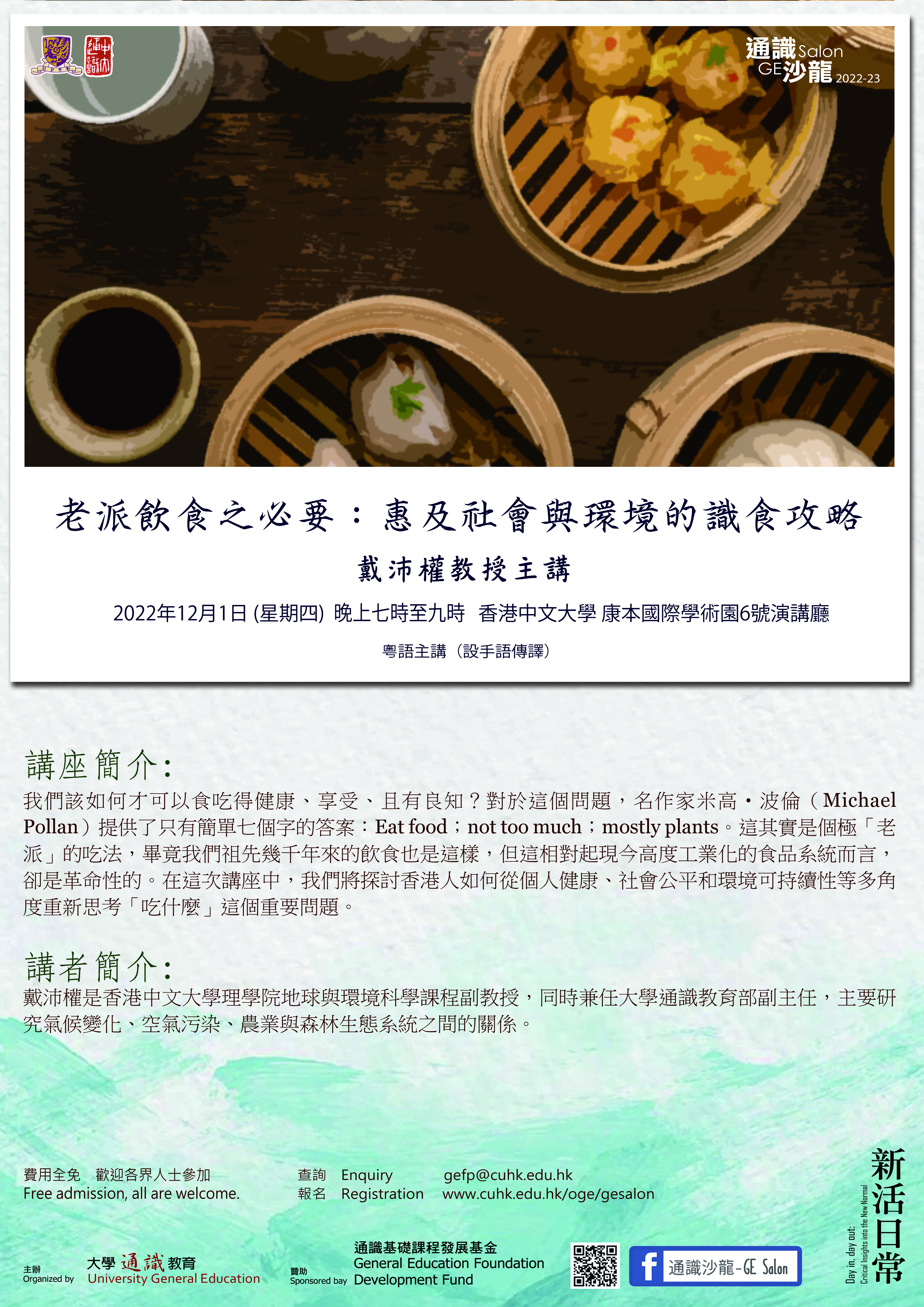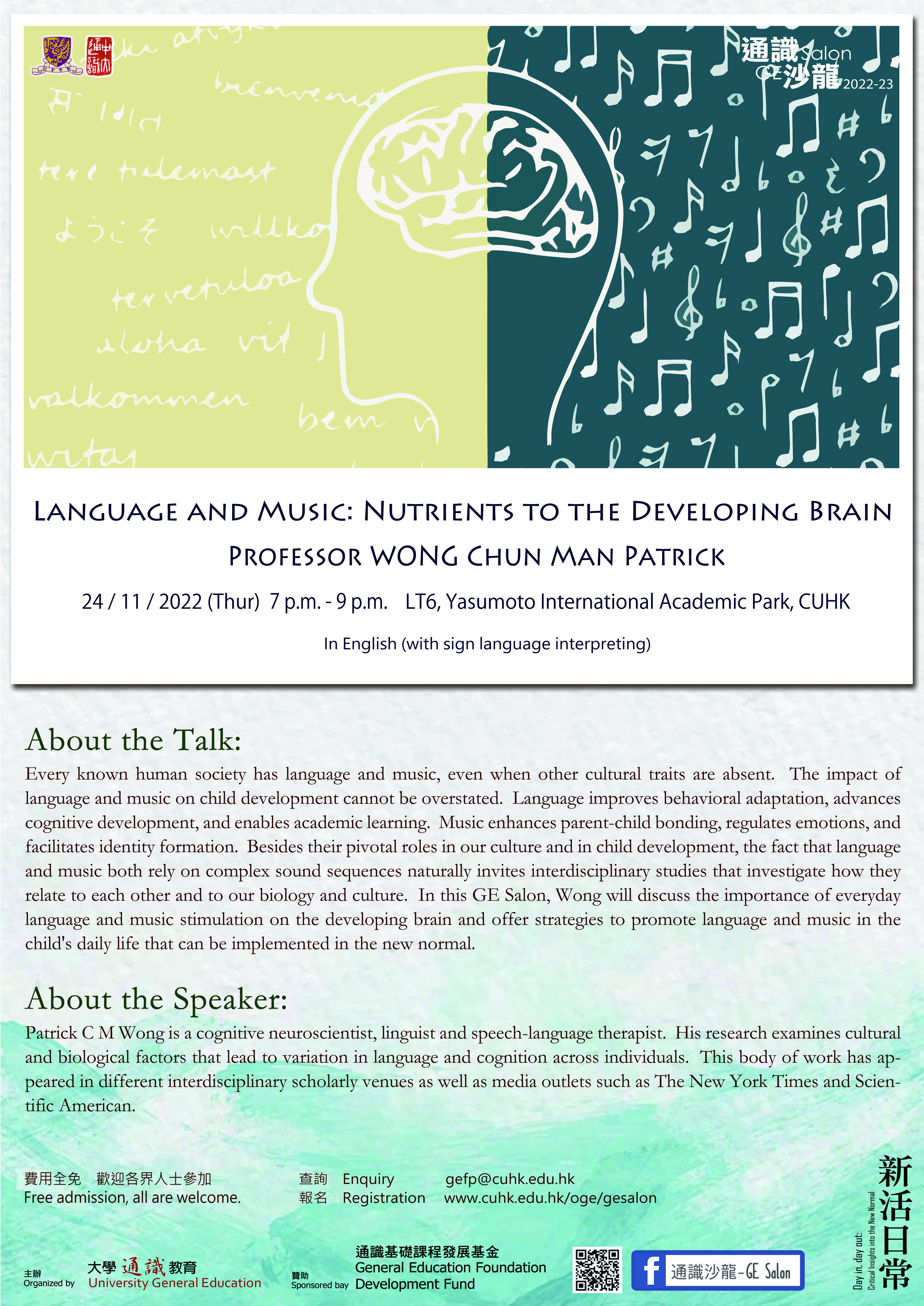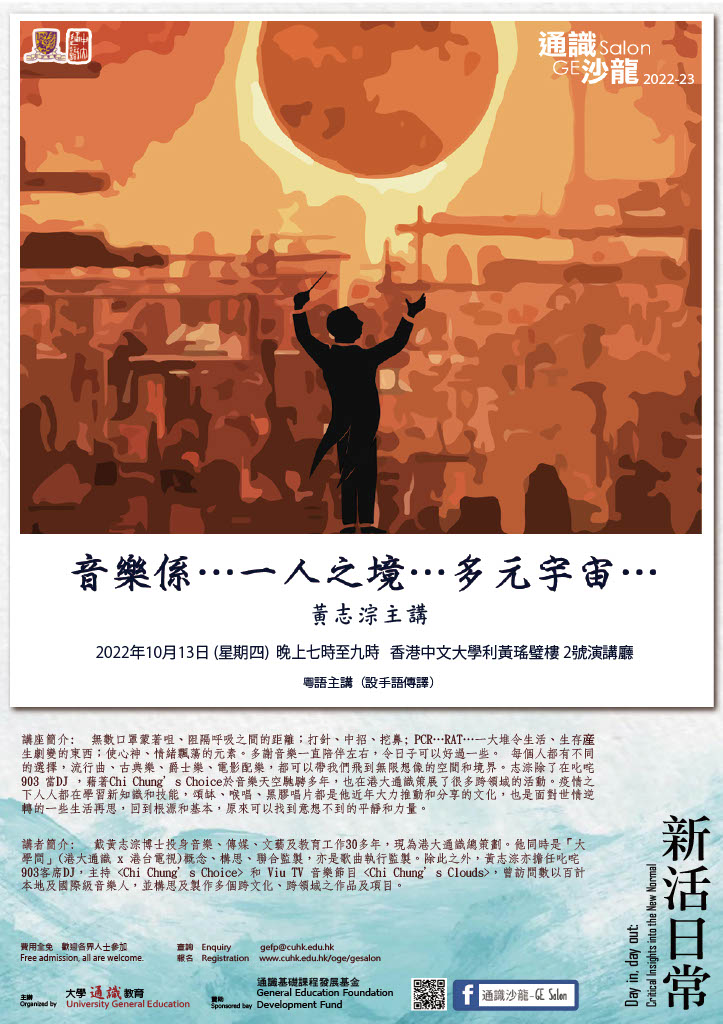A Gentleman’s Guide to Old-Fashioned (but Sustainable) Eating
新活日常 Day in, day out: Critical Insights into the New Normal
A Gentleman’s Guide to Old-Fashioned (but Sustainable) Eating
Speaker: Prof. TAI Pui Kuen Amos
Moderator: Dr. LI Ming
In Cantonese (with sign language interpreting)
About the Talk
What shall we eat for dinner? This deceptively simple question has indeed perplexed modern consumers in the developed world, in the midst of a cornucopia of food choices, further complicated by a dizzying array of food advices from nutrition and health “experts” as well as justifiable warnings that what we eat now may be contributing to social exploitation, environmental pollution and climate change. How shall we, then, eat with optimal health benefit, enjoyment and conscience? Michael Pollan’s answer to such a profound question is just seven simple words: “Eat food. Not too much. Mostly plants.” This is indeed as old-fashioned (in a sense that our ancestors have been eating like this for millennia) as it is revolutionary against the backdrop of our highly industrialized food systems. In this talk, we will discuss all these, and explore how Hong Kong people may rethink the opening question for the sake of personal health, social inclusion, and environmental sustainability.
About the Speaker
Dr. Amos P. K. Tai is an Associate Professor in the Earth System Science Programme of the Faculty of Science, as well as the Associate Director of the Office of University General Education, at The Chinese University of Hong Kong (CUHK). Amos obtained his B.Sc. in Environmental Engineering Science from Massachusetts Institute of Technology (MIT), Ph.D. in Environmental Science and Engineering from Harvard University, and was a Croucher Postdoctoral Fellow at MIT before he joined CUHK in 2013. Amos specializes in atmospheric chemistry and physics, agricultural and forest meteorology, and biosphere-atmosphere interactions. His research combines high-performance Earth system modeling and multivariate statistical analysis of observations to examine the complex interactions between ecosystems and the atmosphere, addressing pressing issues such as the impacts of air pollution and climate change on ecosystems and food security, and how agriculture and forests can be better managed to mitigate environmental impacts. His work has been published in top-ranking journals in the atmospheric and environmental sciences including Nature Climate Change, Nature Food, Atmospheric Chemistry and Physics, and Environmental Research Letters, and earned him the World Meteorological Organization (WMO) Research Award for Young Scientists in 2015, Early Career Award from the Research Grants Council (Hong Kong) in 2014, and founding membership of the Hong Kong Young Academy of Sciences in 2018. Amos is also a passionate educator, having received the prestigious CUHK Vice-Chancellor Exemplary Teaching Award and Faculty of Science Exemplary Teaching Award, and contributed significantly to the establishment and development of the Earth System Science Programme. Amos delights in promoting popular science knowledge to the public, especially on topics such as climate change, environmental sustainability, and faith and science. He regularly gives talks in schools and public avenues, and has participated in and hosted TV and radio programs many times to promote science and environmental education. He has also provided professional consulting services to government departments including the Highways Department and Agriculture, Fisheries and Conservation Department.
Language and Music: Nutrients to the Developing Brain
新活日常 Day in, day out: Critical Insights into the New Normal
Language and Music: Nutrients to the Developing Brain
Speaker: WONG Chun Man Patrick
Moderator: Klaus COLANERO
In English (with sign language interpreting)
About the Talk
Every known human society has language and music, even when other cultural traits are absent. The impact of language and music on child development cannot be overstated. Language improves behavioral adaptation, advances cognitive development, and enables academic learning. Music enhances parent-child bonding, regulates emotions, and facilitates identity formation. Besides their pivotal roles in our culture and in child development, the fact that language and music both rely on complex sound sequences naturally invites interdisciplinary studies that investigate how they relate to each other and to our biology and culture. In this GE Salon, Wong will discuss the importance of everyday language and music stimulation on the developing brain and offer strategies to promote language and music in the child's daily life that can be implemented in the new normal.
About the Speaker
Patrick C M Wong is a cognitive neuroscientist, linguist and speech-language therapist. His research examines cultural and biological factors that lead to variation in language and cognition across individuals. This body of work has appeared in different interdisciplinary scholarly venues as well as media outlets such as The New York Times and Scientific American.
"Lamma Mia" Documentary Screening and Sharing Session
新活日常 Day in, day out: Critical Insights into the New Normal
"Lamma Mia" Documentary Screening and Sharing Session
Speaker: MA Chi Hang, CHEUK Cheung
Moderator: LUI Wing Sing
In Cantonese (with sign language interpreting)








